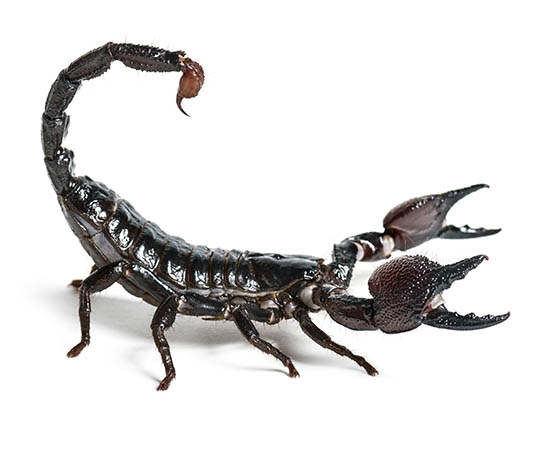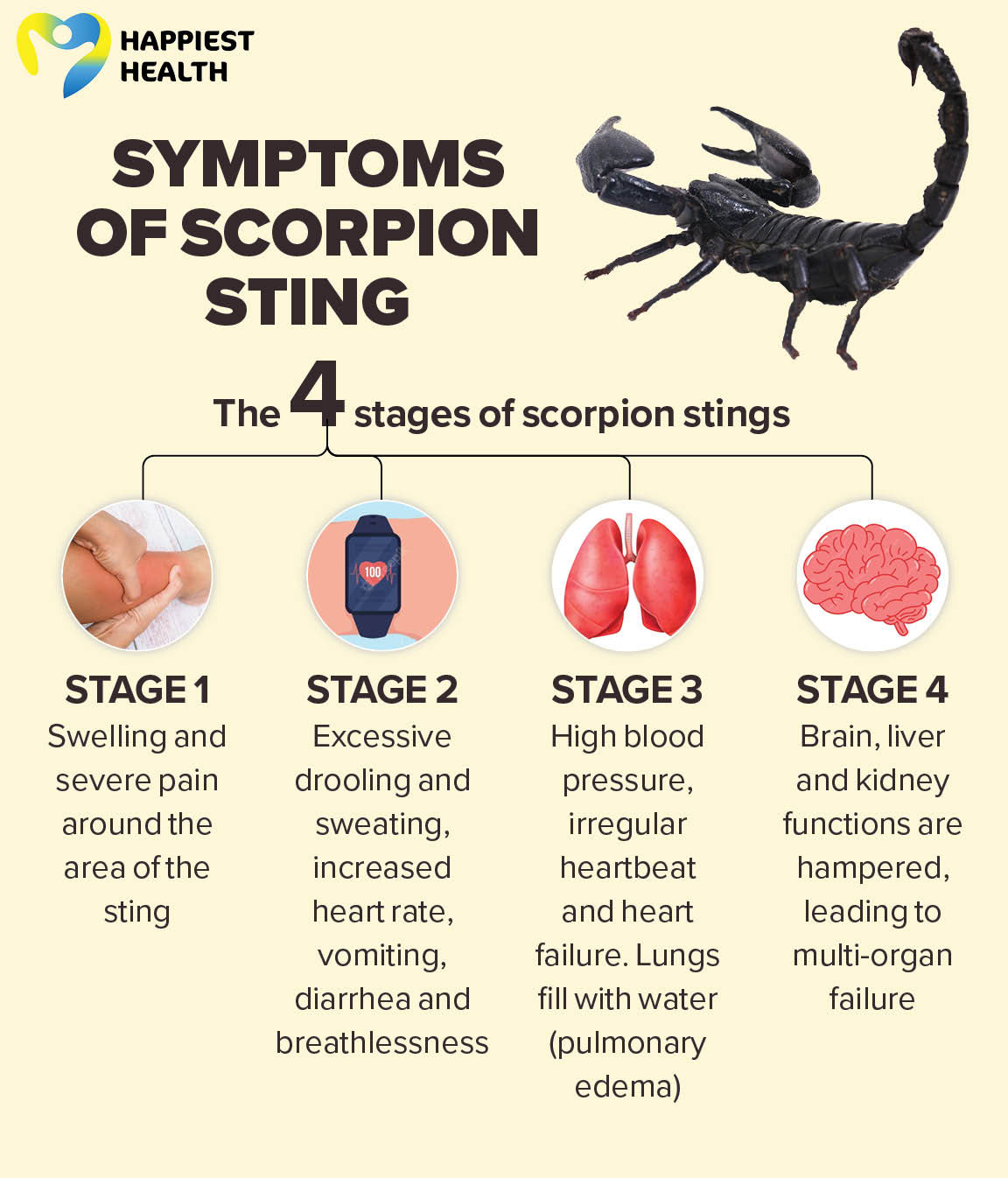
A small prick from the scorpion stinger can leave a person in instant extreme pain which can last for days. Narasimhulu, 58, a farmer from Nellore, Andhra Pradesh, recalls the time he was stung by a scorpion while he was working on his farm in January 2023. “Scorpion stings are common in our village, so I didn’t panic. It was during the day, and it stung me on my right foot. But I couldn’t spot where it was and where it vanished to,” Narasimhulu tells Happiest Health.
Narasimhulu had mild symptoms with extreme pain and swelling in his foot. He was kept under observation for a day and was discharged after administering injections to reduce the pain, says Dr B Bharath Kumar Reddy, emergency medicine and critical care, assistant professor, Narayana Medical College, Nellore, Andhra Pradesh, who attended the case.
Dr Reddy says that scorpion stings can be very painful and severe for the first four to six hours.
READ MORE :
Frostbite: the cold hard facts
How to manage a jellyfish sting
Be it a dog bite or scratch, anti-rabies vaccination is essential
According to Dr Siri M Kamath, senior consultant physician, BGS Gleneagles Global Hospital, Bengaluru, older adults and children are more susceptible to serious complications. “Most of the cases are mild and only about ten to 30 per cent of them face severe reaction,” she says.
What happens to the body when a scorpion stings?
Dr Kamath says that the scorpion carries its venom in its tail and once it stings, the toxin in the venom disrupts the autonomic nervous system (the nervous system that connects the brain to most of the internal organs) resulting in autonomic storming (autonomic nervous system dysfunction). “This affects the functioning of the heart, bladder, stomach and sweat glands. Not everyone who is stung by scorpions faces severe symptoms,” she says.

Dr Reddy says that the treatment is based on the severity of the poison and the symptoms that one presents. “In most cases, it is pain management through local anaesthesia, followed by observation for 24 hours,” he says, adding that older adults and children could present with symptoms of pulmonary edema and have severe breathing issues.
What you shouldn’t do
Dr Kamath says that people should not resort to the tourniquet method – a way to stop the blood flow by applying pressure using a cloth or bandage. “Applying pressure or cutting open the wound to remove the venom will damage the veins and worsen the condition. The wound area must not be disturbed. As first aid, a person can cleanse it with water and immobilise the area until they reach the hospital,” she says.
Scorpion antivenom
Horses are the source of the lifesaving antivenom for scorpion stings, says Dr Kamath. She explains that a horse’s immune system responds to the venom and generates antibodies which are extracted and used to create the antivenom.
Dr Reddy says that antivenom is not used in all cases and that treatment is based on the symptoms presented. Hottentotta Tamulus, the Indian red scorpion, is found in many places in India and is one of the deadliest scorpions in the world. Its sting can be fatal if not treated in time.
“People need to be aware of the places where scorpions can be found and must not disturb or provoke them,” says Dr Kamath
Takeaways
Precautionary measures
- If someone is travelling or living in areas where scorpions are present, they need to have knowledge about the species found in that area and understand how venomous they are.
- Scorpions are found under rocks, cracks, debris and dark places. Do not disturb them unnecessarily.
- Wear gloves and boots while walking in areas inhabited by scorpions.
- Scorpions tend to hide inside footwear. Check footwear before wearing them.

















3 Responses
Excellent information
Very useful
Thanks for the positive response!
Dr. Himmatrao Bawakar , had rearch papers on scorpion bite, published in LANCETS , & accepted all over the world .